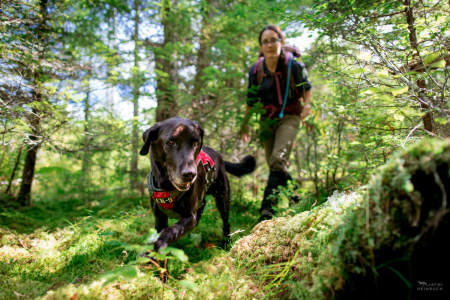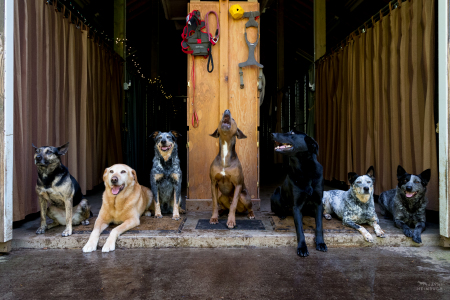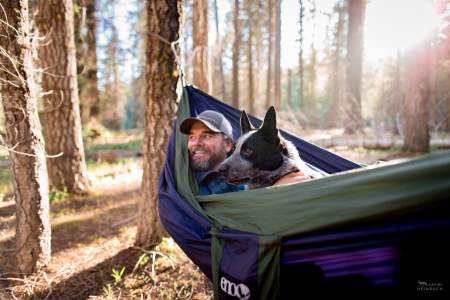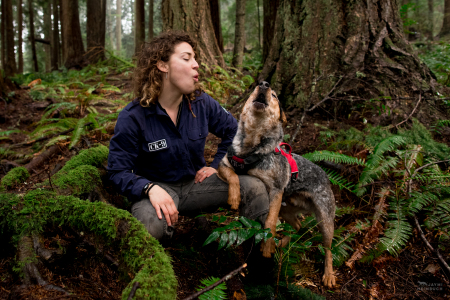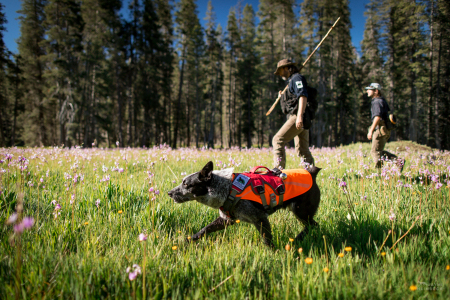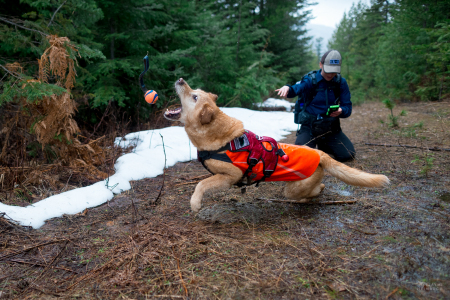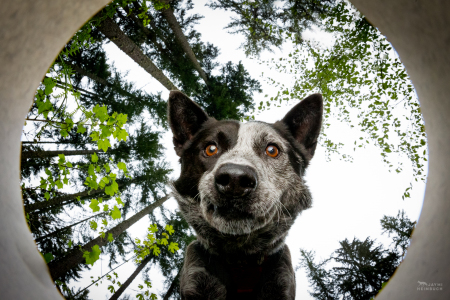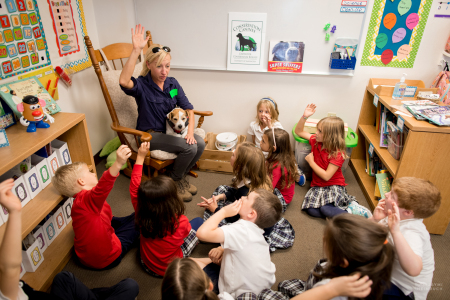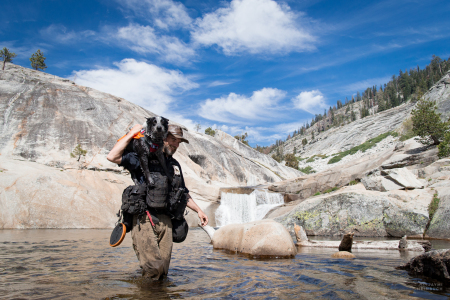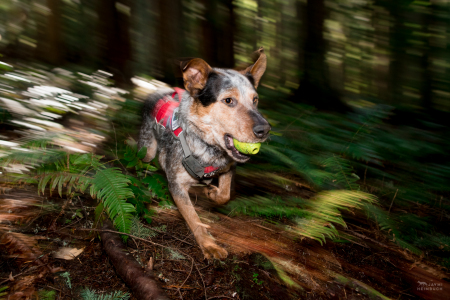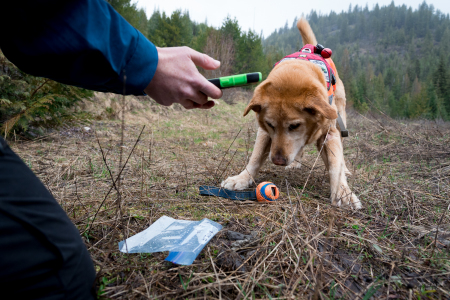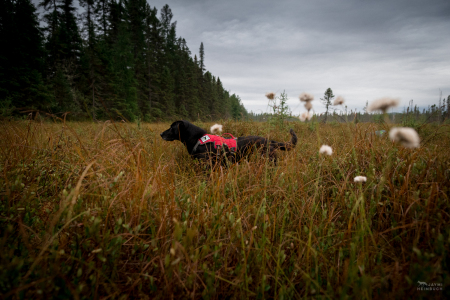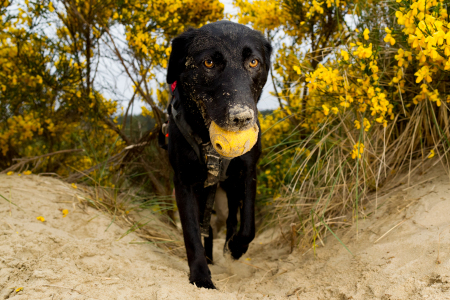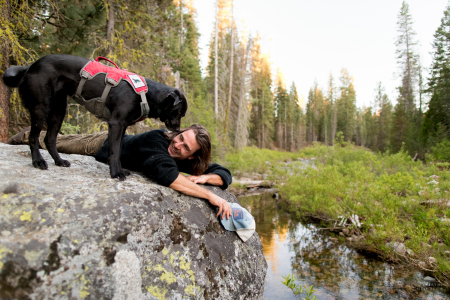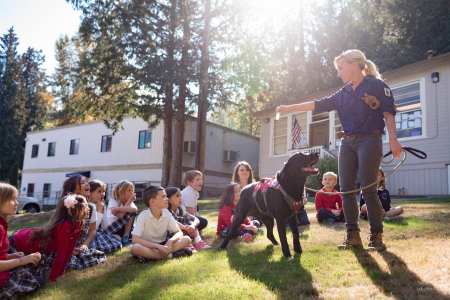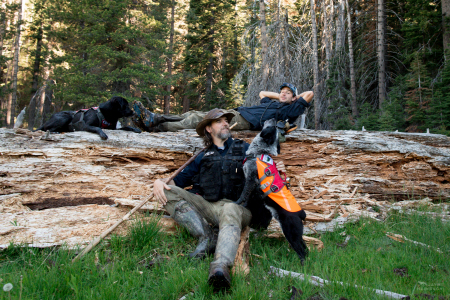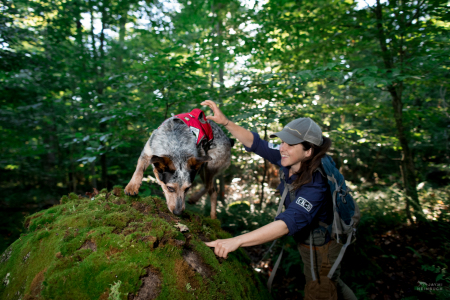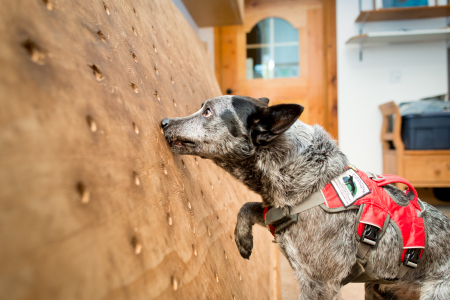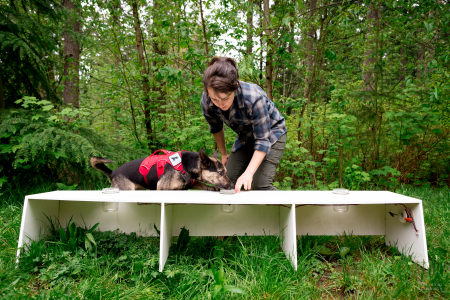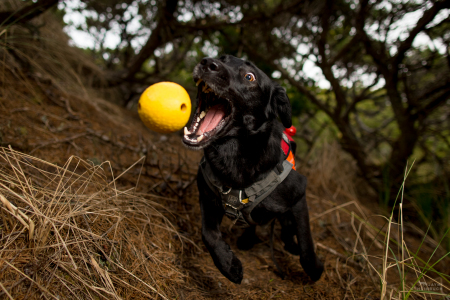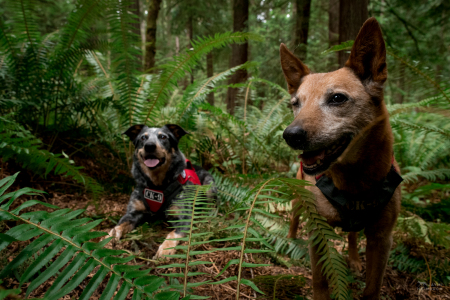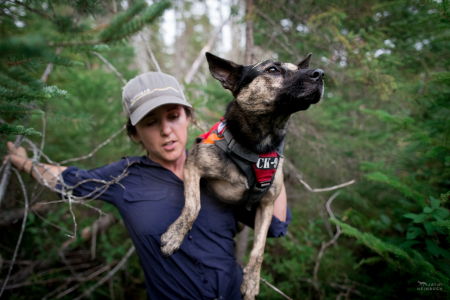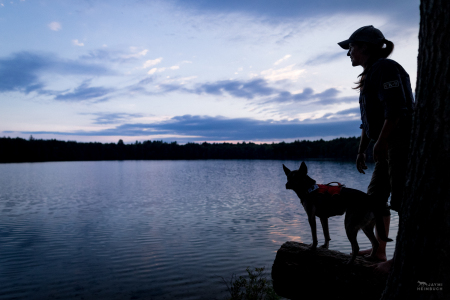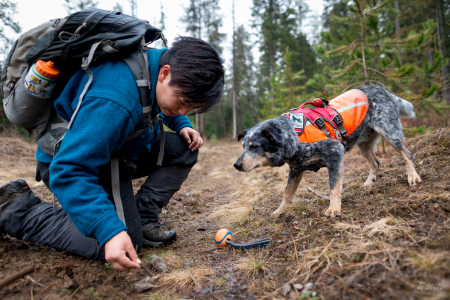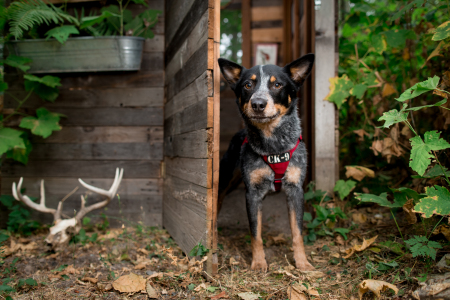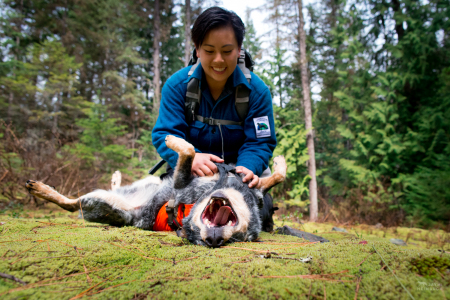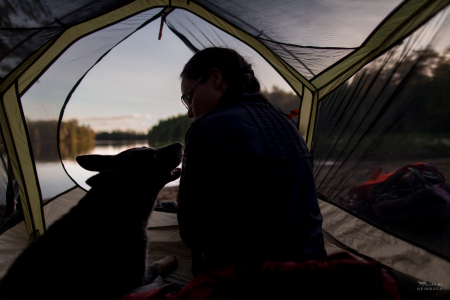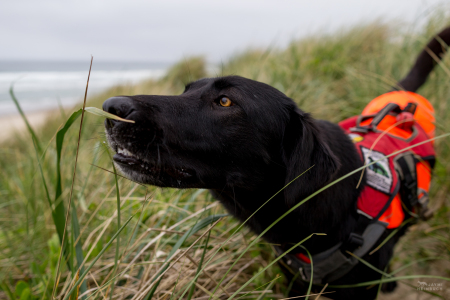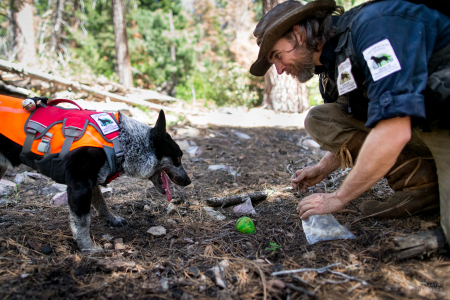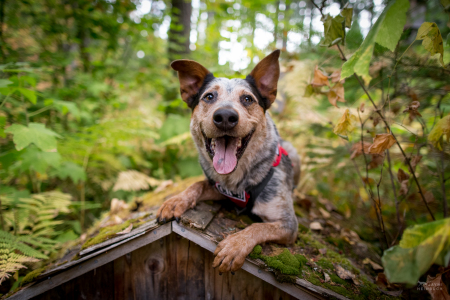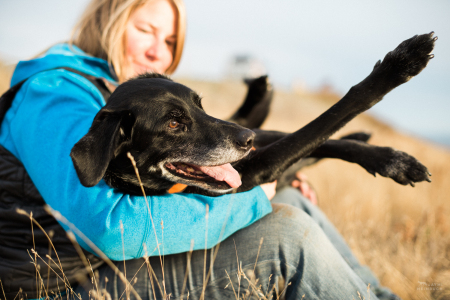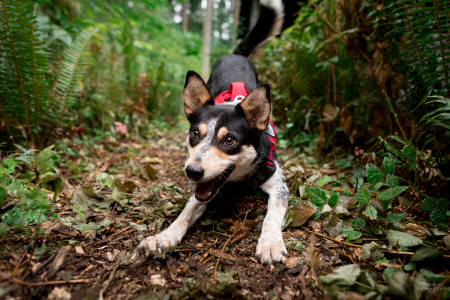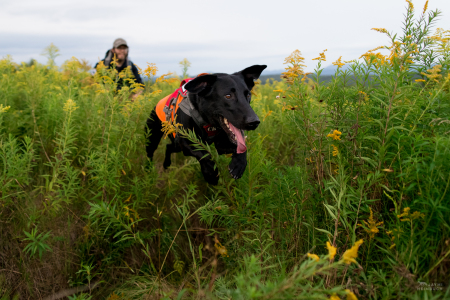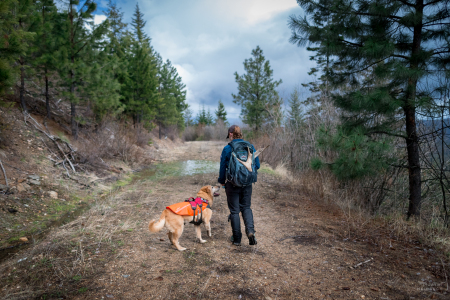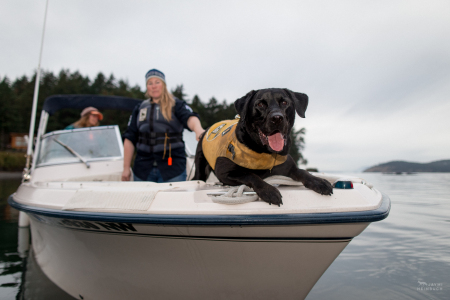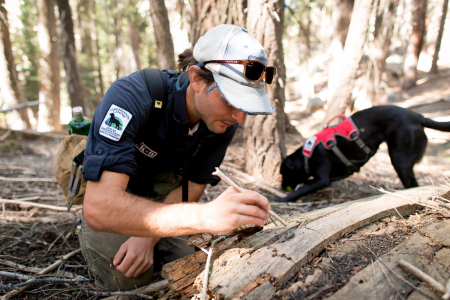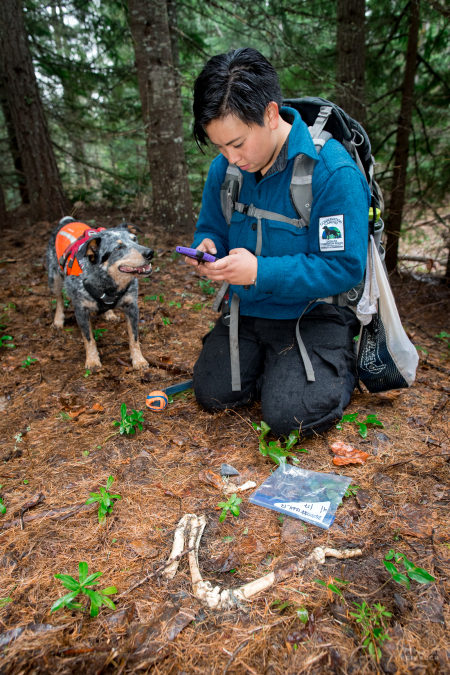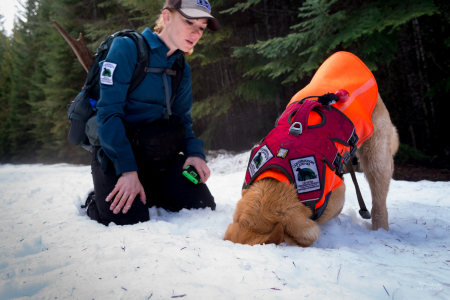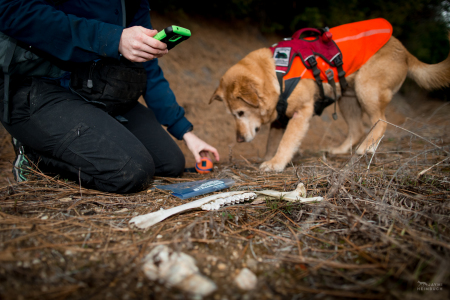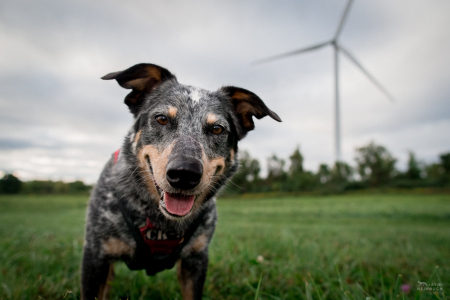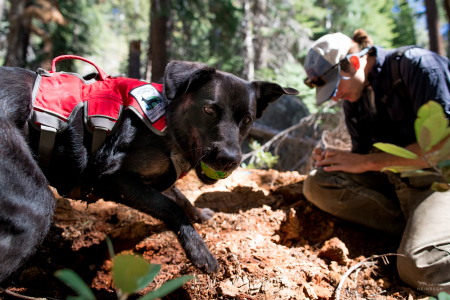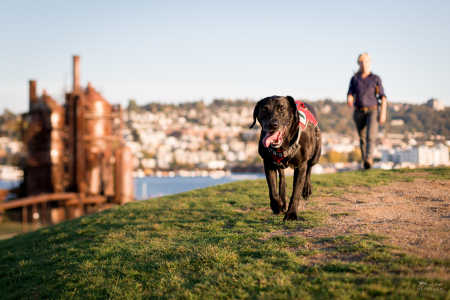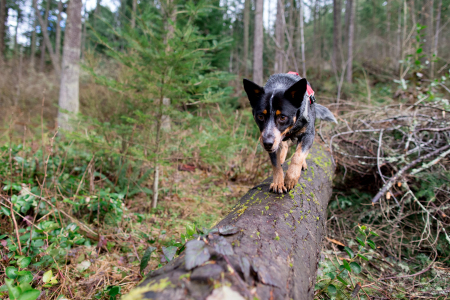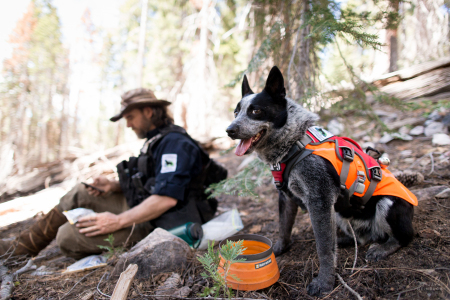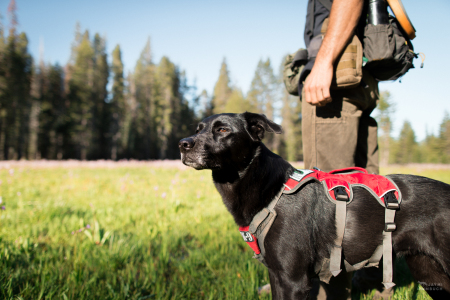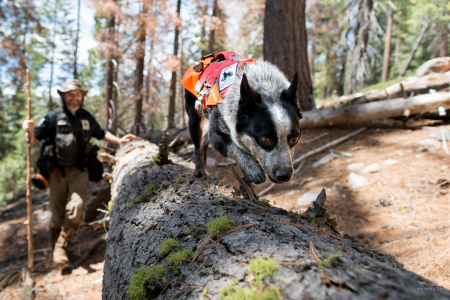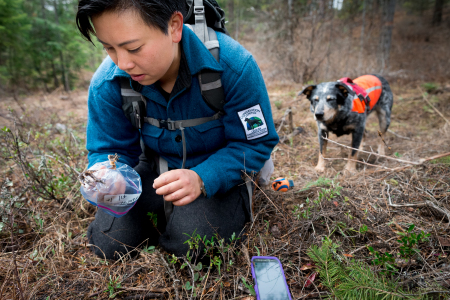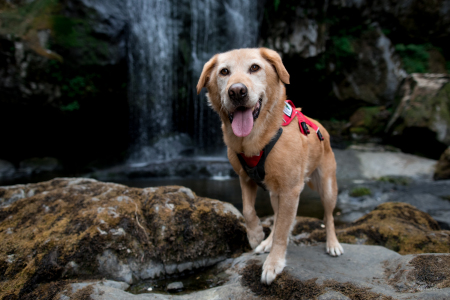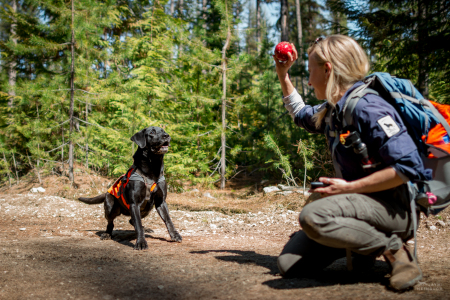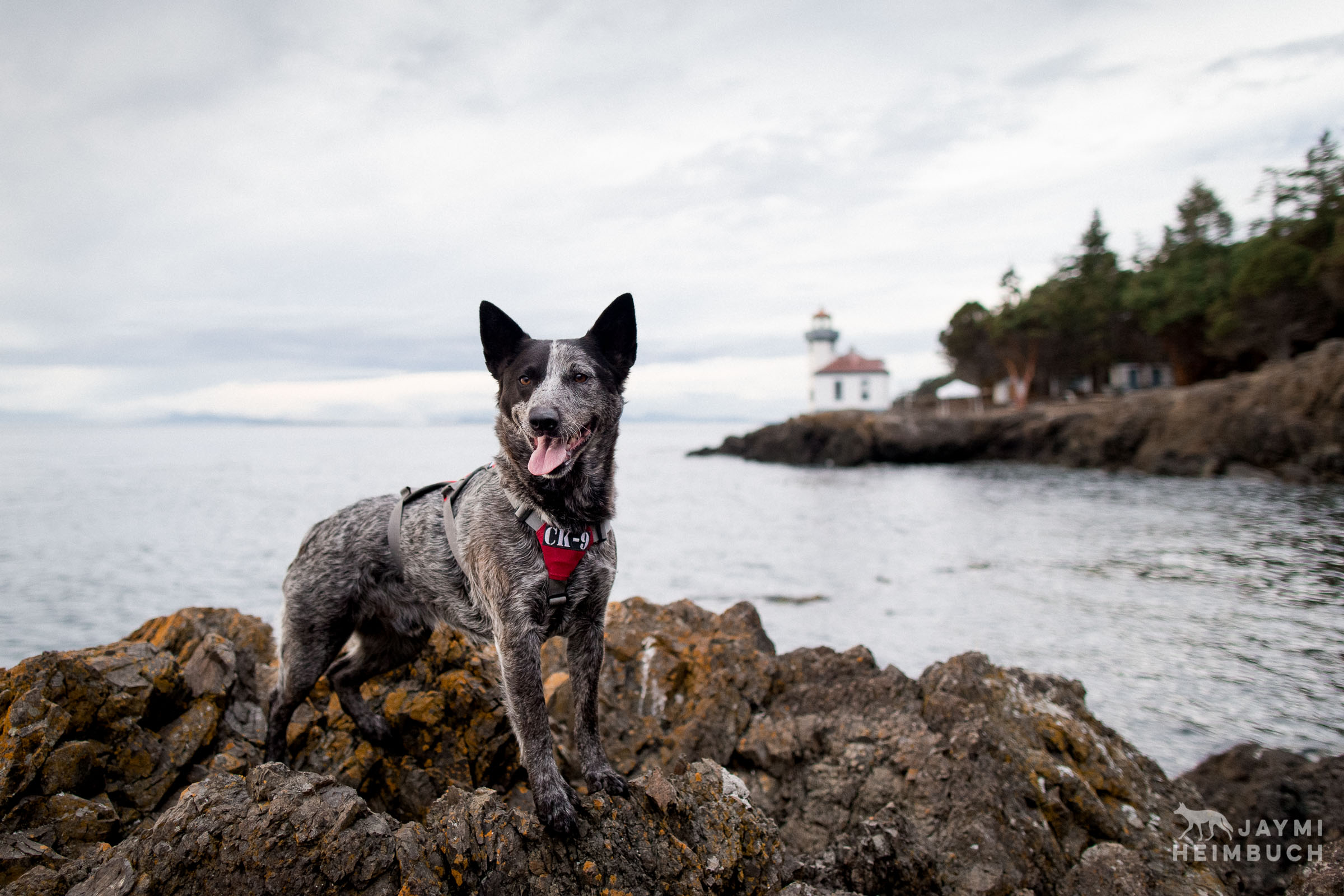
Detection
Dogs
What do you get when you combine toy-obsessed, high-energy dogs stuck in shelters with tenacious, patient handlers who train dogs in scent detection?
Super-star rescue dogs who help biologists study and protect endangered species and habitats!
A detection dog and his or her handler work together to locate data to aid wildlife biologists. The dogs are trained in scent detection for over three dozen species, from orca whale scat to endangered spotted owl pellets.
From caribou in Canada to dholes in Cambodia, the dogs have proven themselves to be an invaluable asset to biology projects around the world.
A detection dog program accomplishes several admirable goals simultaneously. It rescues difficult-to-home shelter dogs, provides them with an outlet for their energy and drive to work, and helps biologists study and protect wildlife species and habitats at risk.
For four years I volunteered with dog detection programs, including Conservation Canines, a program of University of Washington’s Center for Conservation Biology, and Rogue Detection Teams, a company based in Washington. These programs adopt dogs who have little to no chance of finding a forever home with a family. The dogs have endless energy and one-track minds. These traits make them impossible as pets, but ideal for working as scat detection dogs.
Highlights from this work include:
Published in:
Across four years, I designed and ran calendar fundraisers that brought in roughly $20,000 in donations. The fundraisers were an amazing way to bring in not only funds, but build an amazing audience of fans and supporters. Images were used on social media platforms to keep conversations going with those fans throughout the year, helping to boost energy and attention around the annual calendar fundraiser.
